Search
Search Results

Definition
Ptolemy XII
Ptolemy XII Neos Dionysos (r. 80-51 BCE) was king of Ptolemaic Egypt and father of Cleopatra VII (r. 51-30 BCE). His illegitimate birth and drunkenness inspired ridicule, and he was nicknamed "Auletes" ("the Flute-Player") for his musicianship...

Definition
Freya Stark
Freya Stark (l. 1893-1993) was an English explorer, writer, and political influencer who chronicled world events, especially in the Near East, throughout the 20th century. Stark both reported on and made the news as her travels, described...
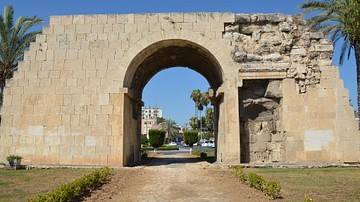
Definition
Cilicia Campestris
Cilicia Campestris was one of the six districts of the Roman province of Cilicia organized by Pompey the Great (l. c. 106-48 BCE) in 64 BCE. The name translates roughly into “Cilicia of the Plains” and corresponds to the earlier name for...

Definition
Battle of Immae
The Battle of Immae (272 CE) was fought between the forces of the Roman emperor Aurelian (270-275 CE) and those of the Palmyrene Empire of Zenobia (267-273 CE) resulting in a Roman victory and, ultimately, the capture of Zenobia and an end...

Definition
Proclus
Proclus of Athens (c. 412-485 CE) was a prolific Platonic philosopher whose main aim was the seemingly impossible task of defending traditional Greek polytheism at the time when his contemporary culture was almost completely dominated by...
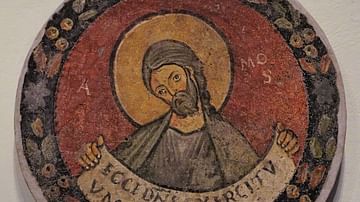
Definition
Amos
Amos is listed as one of the twelve minor prophets in the Hebrew Bible. Amos was one of the first to put his visions into writing. The earthquake mentioned in the first chapter of the Book of Amos places Amos between 760-755 BCE. The Two...
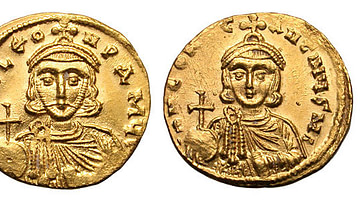
Definition
Constantine V
Constantine V, also known as Constantine the Dung-named by his enemies, was emperor of the Byzantine empire from 741 to 775 CE. He enjoyed military successes in the Middle East and Balkans but his reign is chiefly remembered for his systematic...

Definition
John I Tzimiskes
John I Tzimiskes was Byzantine emperor from 969 to 976 CE. Although he took the throne by murdering his predecessor Nikephoros II Phokas, John was a popular emperor. A skilled general and a competent politician, he is known for expanding...
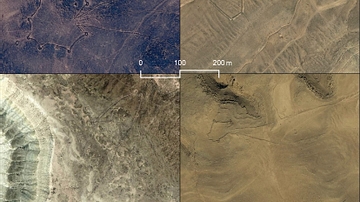
Definition
Desert Kites
Desert kites are mega-constructions that consist of two long walls converging upon an enclosed space that has on its periphery small stone constructions called cells. Seen from the sky, their shape suggests that of a windborne kite; they...
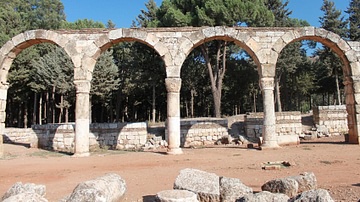
Definition
Anjar
The city of Anjar stands as the single Umayyad site in Lebanon, located near the Litani River and 58 km from the capital of Beirut. Anjar was founded during the Umayyad period under Caliph Walid ibn 'Abd al-Malak (r. 705-715 CE) and takes...